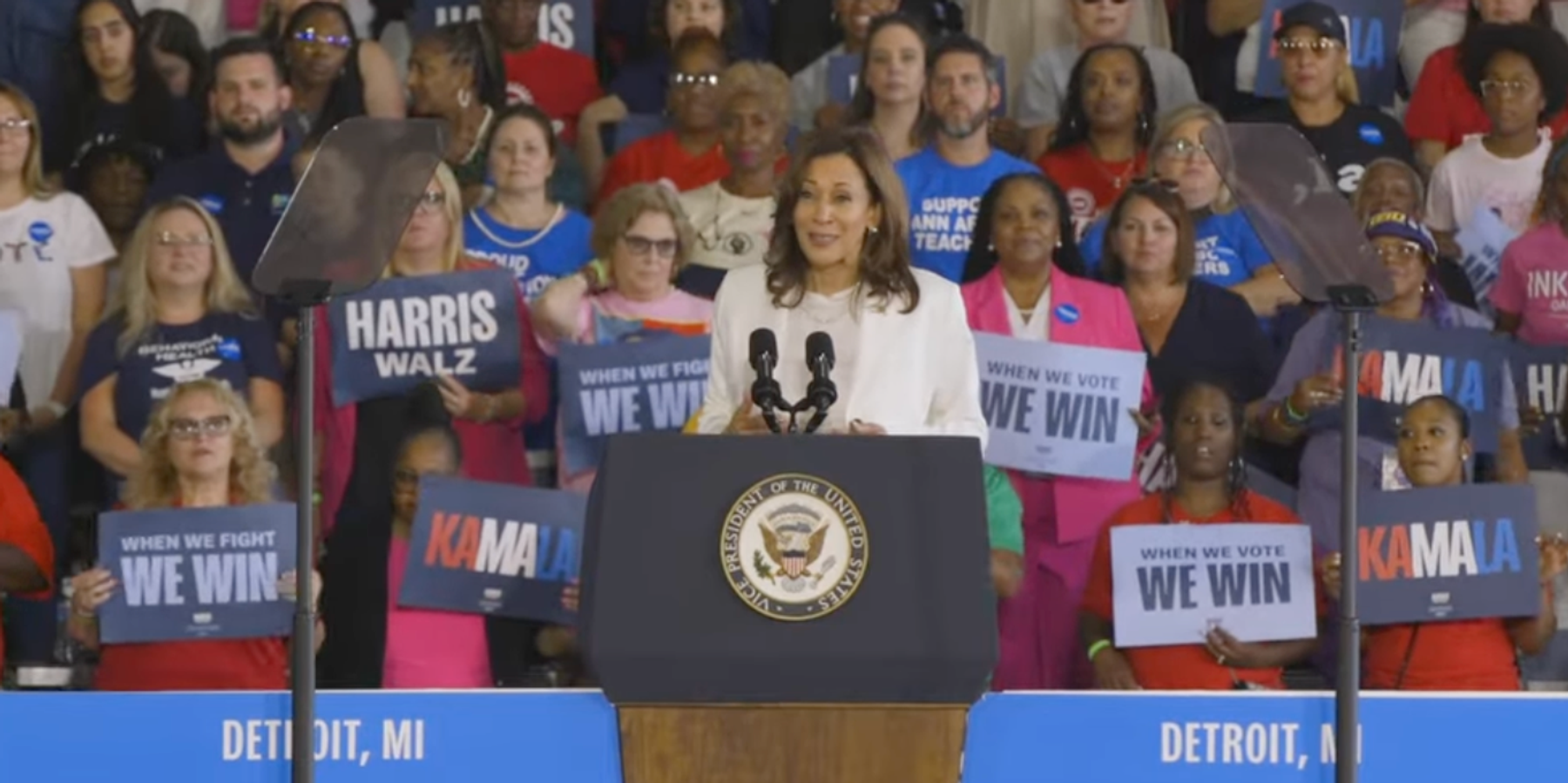This week, Vice President Kamala Harris has missed important opportunities to distinguish herself from President Biden’s disastrous approach on Gaza — renewing serious concerns about how she might handle the Israeli-Palestinian conflict if elected in November.
At a campaign rally in Detroit last night, Harris was met with protests of the Biden administration’s unconditional support for Israel’s war in Gaza, which has killed at least 40,000 Palestinians (and likely many more). “Kamala, Kamala, you can’t hide, we won’t vote for genocide,” the protesters chanted — echoing the disgust with America’s role in the slaughter in Gaza that led more than 100,000 primary voters in Michigan to cast a ballot for “uncommitted” during the state’s democratic primary.
After first responding cordially — “I’m here because we believe in democracy. Everyone’s voice matters. But I am speaking now” — Harris shifted to dismissiveness when the protesters continued chanting, telling them, “You know what? If you want Donald Trump to win, then say that. Otherwise, I’m speaking.”
Since assuming the Democratic nomination, Harris’ approach to the U.S.-backed war in Gaza has differed somewhat in style from Biden. This was evident in her campaign’s decision to invite leaders from Michigan’s “Uncommitted” campaign to a rope line at yesterday’s rally, where they reportedly aired their concerns with Vice President Harris and her ticketmate, Minnesota Governor Tim Walz. But her dismissal of the protesters from the podium, along with a tweet this morning from Harris’ key foreign policy advisor, Phil Gordon, suggests that those of us hoping that her different style might portend substantive policy change shouldn’t hold our breath.
Vice President Harris, Gordon writes, “has been clear: she will always ensure Israel is able to defend itself against Iran and Iran-backed terrorist groups. She does not support an arms embargo on Israel. She will continue to work to protect civilians in Gaza and to uphold international humanitarian law.”
I resigned from the State Department in March because America’s unconditional support for Israel’s war in Gaza made protecting civilians in Gaza and upholding international humanitarian law impossible. In July alone, Israel has bombed 17 United Nations Relief and Works Agency schools serving as temporary shelters — another Israeli violation of international humanitarian law, likely committed with American bombs.
Refusing to withhold U.S. weapons from Israel as it conducts what the ICJ has ruled is plausibly a genocide is wholly incompatible with Harris’ purported humanitarian goals. And now, as the Middle East awaits a worrying escalation in violence between Israel and its opponents, there is an extraordinary risk that the U.S. will be boxed into entering a regional war for Israel — an outcome that would not only put U.S. service members in the line of fire and spell far more needless death and destruction in the region, but also deal a perhaps fatal blow to Harris’ presidential ambitions.
Vice President Harris needn’t risk her campaign and U.S. lives to satisfy Netanyahu, who hopes to prolong his political viability by putting Israel in a state of semi-permanent war. America has massive leverage to prevent further Israeli aggression in the region — it’s time to use it. If Harris and the Democrats want to win in November, they must work diligently now to avert a regional war by convincing Biden to withhold all further security aid until Netanyahu agrees to a full cease-fire in Gaza.
Israel needs to know that America won’t fight this war for them. Pairing more weapons shipments with increased displays of empathy for Palestinians and rope line greetings will do nothing to avert an escalation that could have catastrophic consequences for Harris’ campaign, America, the region, and the world.
- Harris picks Walz, a midwesterner with antiwar credentials ›
- Report: Nearly 2% of Gazans killed in last 10 months | Responsible Statecraft ›
- Kamala & Gaza: All words and no deeds make a divided party | Responsible Statecraft ›
- Did Israel hurt the Harris vote in Michigan? | Responsible Statecraft ›
















